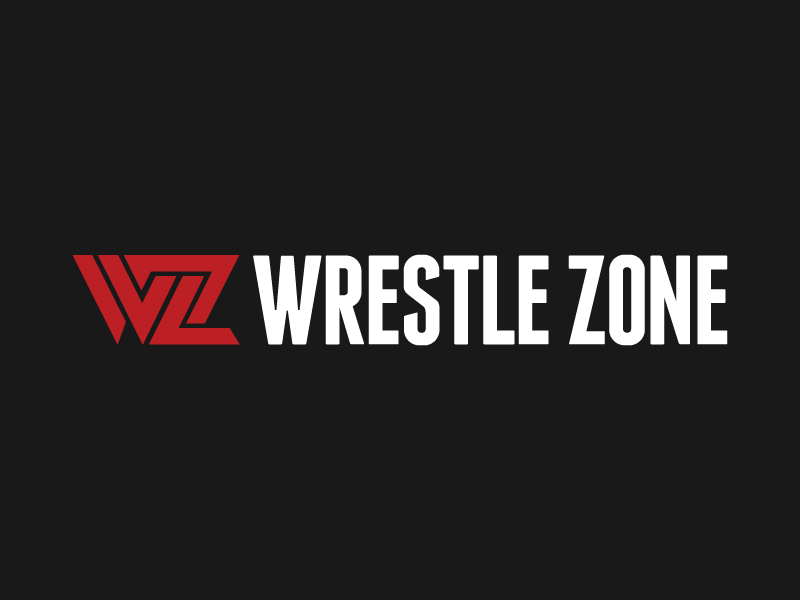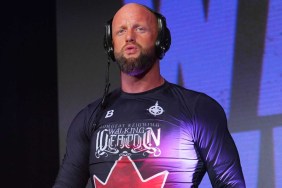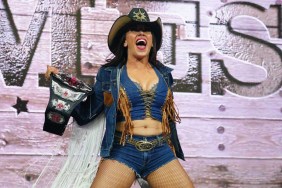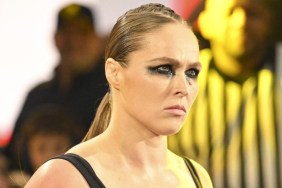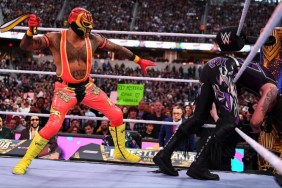Wrestling, is an overlooked representation of what the dominant views of a society are. It’s discarded as trash television that appeals to the very bottom rung of the social ladder, which is exactly why it actually harbours deep reflections of the world. To most people this seems inconceivable, pro wrestling actually having textual worth is difficult to swallow. But much like comic books, cartoons, and music videos which are also hindered by the perception that they are little more than pulp fiction, when in actual fact, they too are steeped with values and influenced by how society is viewed.
Pro wrestling centres on the time old struggle between good and evil. It draws a clear and distinct line of division as to who is the hero and who is villain, echoing how the social environment tends to think in similar black and white arguments. The attitude of “we are right, everyone else is wrong” is standard for most societies, which made it inevitable for it to influence how we entertain ourselves. The only indicator needed to prove this, is the abundance of patriot type wrestlers who do little more than wave a flag and sing the national anthem, and receive phenomenal crowd reaction.
Inversely, current adversaries of the U.S. are hung up to be jibed and hissed for merely expressing their own individual opinion. This method is a simple way to create cheap heat with most of the work already done through the media. More so, it reflects how the population instantly responds to anything “real world” and not of the usual status quo. Patriotism has produced not only some exceedingly successful faces but also some loathed heels, all by simply applying the real world attitudes to a different medium.
Interpretation and subversion of reality isn’t only restricted to race and political sidings, but also popular discussion topics doing the rounds. Right To Censor were in response to the overbearing censorship laws which constricted wrestling during the Monday Night Wars. Lenny & Lodi were signals that the growing homosexual acceptance was spreading even further. The Nation of Domination was about recognition of the aftermath of the turbulent early nineties for the black community. Although none of these may have been outstandingly successful, they acknowledged the outside and appropriated it to suit.
Fast forward to the present, a surplus of gimmicked wrestlers are popping up throughout the two shows and making an impact. Eugene, Simon Dean, The Hassan Brothers, Kenzo Suzuki and JBL are all considerably fresh characters that in one way or another have brought something new to the table. Eugene, a simpleton who still somehow manages to be a crowd favourite just goes to show the increased acceptance of the disabled and disadvantaged, a decade ago he would’ve been introduced solely to be ridiculed. While Simon Dean is the personification of the emergent shunning of fast food and sudden flood of overbearing exercise regimes.
Of all of the fresh characters, by far the most fascinatingly portrayed one would be the Hassan brothers. On the surface they could be passed off as little more than a fashionably late 9/11 heel pair, but that is only superficial. After only seeing one promo, they are miles away from run of the mill. The more athletic of the two comes across as modest and self-effacing, someone only trying to fit into a world which instantly catergorises him. Even though he feels he is hard done by, he holds no grudges, responding with affirmative action in order to the separate himself from the stereotype. The viewer learnt all this through his articulate, and intelligent monologue on Raw. The crowd had no idea whether to empathise or hate the guy, but before they had a chance to make a decision the second brother translated it into “Arabic” (whether or not it was legitimate Arabic is irrelevant). Even though symbolically he was giving the identical monologue, it came across as a aggressive and sinister, giving the audience no reluctance to heckle and taunt him. Leaving me at home utterly amazed by what I had just witnessed, the finest constructed promo I can recall seeing in the last half decade.
Through a simple language mechanism, the promo quickly flip flopped from face to heel. Essentially, neither of the two did anything “heatworthy”, except, by playing off the current mass assertion about the countries vulnerability, the WWE turned an innocent wrestler seeking little more than a chance into a mega heel and an unwelcome reminder of the outside world.
Similarly, the current Billy Kidman angle follows the same “being good is evil” credo. The angle began with Kidman legitimately botching a shooting on Chavo, which was capitalized on, making Billy Kidman reluctant to pull of the fan favourite maneuver, which didn’t sit well with the fans who urged and coaxed him to perform it, to which he refused. So far, nothing incredibly ill omened or out of the ordinary, except for the fact that the storyline’s foundation is about one wrestler legitimately hurting the other, and turning heel because of it. Under the shroud of kayfabe, Billy Kidman’s (and any other wrestler’s) sole intention is to wrestle authentically as though it was a true sport, yet as soon as he actually hurts someone and is remorseful, he becomes a heel. A strange angle, which is a subtle indication that kayfabe is well and truly extinct. It relates to the real world in the way that it shows how bloodthirsty the audience has become (wanting Kidman to perform the hazardous move) as well as the WWE themselves accepting the passing of kayfabe.
By introducing the element of reality, the WWE are making the product more believable for the watcher. But through doing so, they are unintentionally reflecting what society’s values and attitudes are. The health craze, international conflict, and corporate greed (in the form of JBL) are all current issues that the average Joe is accustomed to having to deal with. Equally, the Attitude era represented a time where shock value was held above all, and TV was forever pushing the envelope to see what they could get away with, often stumbling. The era before, where the outlandish and gimmick ridden product reflected the frivolous and colourful lifestyle and fashions of the time. Pro wrestling has always been a reflection of pop culture, yet today we see patronising demons such as dieting and paranoia get their just desserts in the form of a good mud-hole stomping.
Overall, it’s a healthy trend to personify these issues and feel the satisfaction of them being overcome in the ring, and shows that no matter how overpowering they may seem in the real world, television allows our heroes, our white knights, us, to express these frustrations through harmless and inspiring violence.
If you enjoyed the article, or have something to say, you can contact me on [email protected], I reply to each and every piece of mail.
Over and Out
The Butcher
